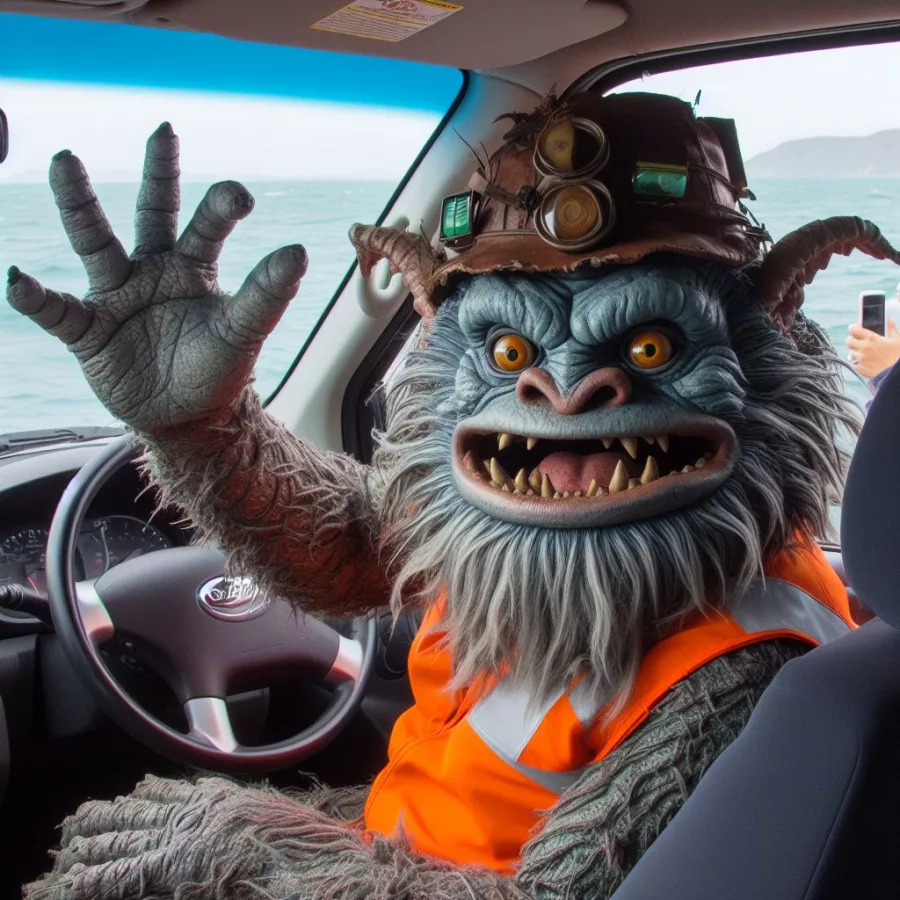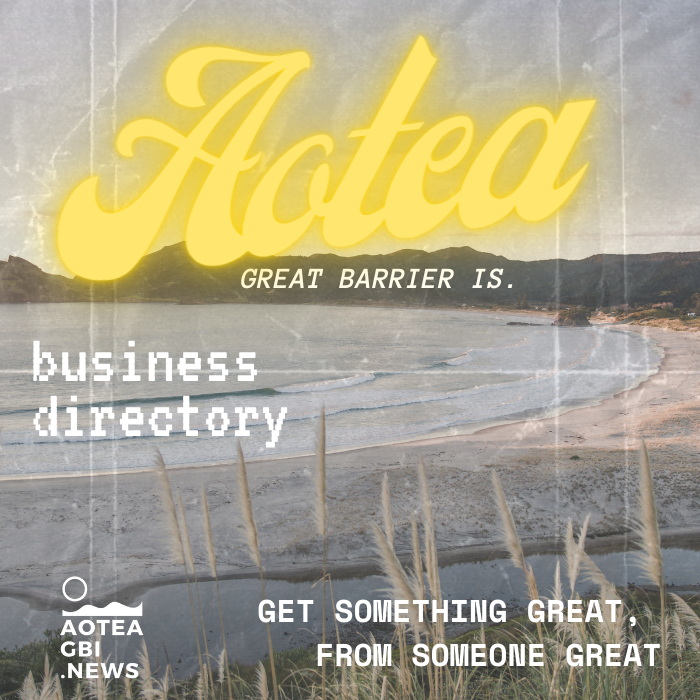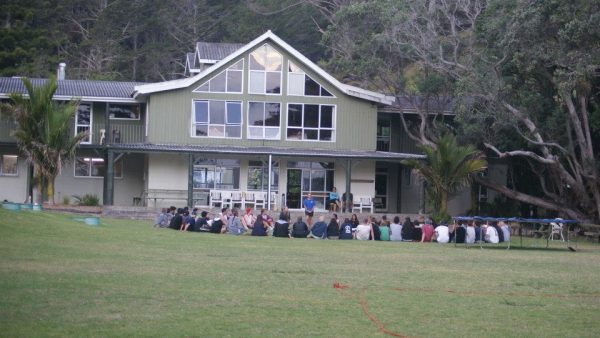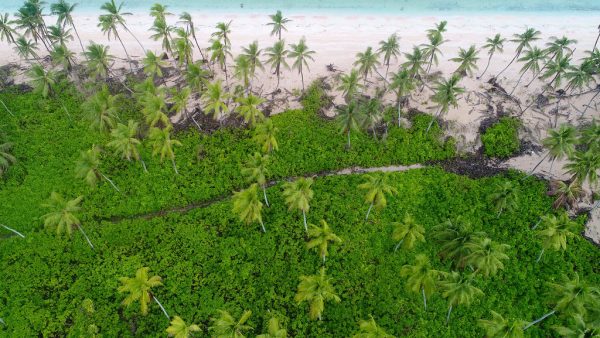It’s a curious situation: Great Barrier Island, known for its friendly wave to every passing car, also bears the reputation of having ‘rude’ locals, according to some visitors. So, what’s the real story?
Welcome to one of our most-read pages. It’s a curious situation: Great Barrier Island, known for its friendly wave to every passing car, also bears the reputation of having ‘rude’ locals, according to some visitors. So, what’s the real story?
Toxic Masculinity
There’s a peculiar strain of toxic masculinity on Great Barrier Island that’s hard to miss. I remember reading an old edition of the New Zealand Herald where the writer amusingly (perhaps for the time) noted that some women at the island’s pub had arm hair so abundant it could be used to make rope. Truthfully Aotea boasts some of the most beautiful, brilliant women on earth. However, like the rest of Aotearoa, which has one of the highest male suicide rates in the developed world, there’s a lingering notion here that toxic masculinity is something to be proud of, a badge of honor.
Let’s face it, this isn’t St Barts. Perhaps some aspects of this masculinity are inevitable on an island where digging your own septic is the norm, and using something as simple as hot rollers could knock your solar setup out for a week. But there’s a darker side to this as well. We’ve seen varying degrees of homophobia and – in some places, general unkindness towards those who are different. This attitude should be a source of island-wide shame.
Thankfully, things are starting to shift. In a pretty groundbreaking move, one of the younger men on the island started a men’s group where guys get together to talk about life. It’s hard to overstate the significance of this.
Environmental Concerns and Fishing Tensions:
A significant issue contributing to local disgruntlement is the behavior of some visiting people who want to fish or dive. They arrive with large boats to exploit the moana, showing little regard for the locals who depend on these waters for sustenance (we don’t have a supermarket and have amongst the lowest wages and higest cost of living in the country). The recent calamity with the caulerpa seaweed, exacerbated by fishermen violating the rāhui (a temporary prohibition), has only fueled this tension. Actions by fishermen – packing their own food, overfishing, then leaving waste behind – do little to endear them to the community.
Culture Clash:
The influx of holidaymakers and new bach owners has brought a mixed bag of people to the island. The issue arises when visitors don’t quite grasp the unique rhythm of life here on Aotea. While many have constructed beautiful homes that blend with the landscape, there has been a recent trend of garish, massive, catalogue-style dumps. These structures, and the people that come with them are a stark contrast to the island’s artsy and eco-friendly vibe. The homes, used sporadically by their owners, leave a year-round scar on the landscape. Then when their owners turn up, it can be even worse. To our visitors, a humble reminder: We’re all equal here.
The ‘Waiheke’ Dellusion:
There’s an undercurrent among some locals, both Pākehā and Māori, of possessing a more legitimate claim to the island based on longevity. This attitude often manifests in an unwelcoming demeanor towards newcomers. It’s so unbelievably gross, and most of us hate it.
At it’s worst it’s manifested in this idea that being too hospitable might turn Aotea into ‘another Waiheke’.
This is about as far from the truth as Aotea is (geographically) from Waiheke. Unlike Waiheke, a 30-minute ferry ride from Auckland, every hour on the hour, with its ample amenities, Aotea is remote. largely undeveloped, and likely to stay that way.
60 percent of Aotea is conservation land, and the community has rejected a plan to join the grid. Our ferry comes a couple of times a week, takes 4 hours, is often rough as guts and frequently cancelled. The island lacks the urban conveniences of a supermarket, has basically one restaurant, and a round trip to Zara would take the better part of a day and cost about as much as the new iPhone.
We really need to dispel the ‘Waiheke’ Dellusion.
New ‘locals’
Despite Great Barrier Island’s past reputation for having cranky locals, things are definitely changing. Many long-time residents, known for their less-than-friendly attitudes, have actually moved on recently. A couple of years back, I personally intervened when a local store owner was being unbelievably rude to a young father with his kid on vacation. Incidents like that were unfortunately not uncommon, but they’re becoming a thing of the past. That same store is now under new management, part of a broader trend across the motu. We’re witnessing a refreshing shift as those who might have spent too long here, are making room for new locals. This new group is infusing the island with positivity, energy, and a fresh vision, transforming our community into a more welcoming and vibrant place.
Be The Change
Life on Aotea, Great Barrier Island isn’t always easy for locals. The island’s small size, coupled with its relative isolation, creates a unique set of challenges. Poverty is a reality for many here, and mental health issues are likely exacerbated by the island’s seclusion. Tourists, sometimes oblivious to these struggles, can add to the strain with behaviors that locals perceive as disrespectful or exploitative.
However, amidst these challenges, there’s a growing sense of optimism. We’re recognizing that finding a middle ground – a harmonious coexistence between locals and visitors – is key to our island’s future. It’s encouraging to see we’re on the right track, with changes in attitudes and people. But to truly thrive, it calls for introspection from each one of us.
We all need to consider what we can personally contribute, if the goal is to create an island that’s not just awesome in its natural beauty, but also in its spirit of unity and mutual respect. This journey towards a harmonious Great Barrier Island is one we all have to commit to, and it’s one where every individual’s effort can make a significant difference.
Let’s ensure a ‘friendly’ wave isn’t the only kindness we show today – dig deeper, each interaction counts.








